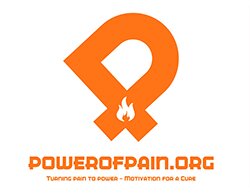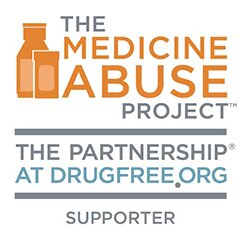| Medication: |
Tramadol (Ultram) |
| Dosage: |
100 mg, 50 mg |
| Price: |
from $4.16 per pill |
| How to Buy |
Get Started Now |
Tramadol (Ultram)
Are you suffering from moderate to severe pain and wondering if Tramadol can help? Learn more about this drug to see if it would be the right choice for you.
An opioid pain relief medication, Tramadol was made to help with moderate to severe pain. It often relieves pain that other drugs were unable to help with. You commonly encounter it with pain relief after someone has had their tonsils taken out, but you should never use it to treat pain for children under the age of 12.
Tramadol belongs to a group of medications referred to as opioid analgesics . It works through the central nervous system to help with relieving your pain. This drug was approved by the FDA for use, and it was invented in 1962 by Grünenthal GmbH, a German company. It wasn’t until 1977 that the FDA approved it for use in the United States.
When you take this drug, it usually starts to work within 30 to 60 minutes. They intended to use this for pain that won’t last for a long period of time. The doctor may prescribe this for pain that comes and goes.
Dosage
Adults 17 and older will usually take 50 mg to 100 mg orally every 4 to 6 hours. The maximum dose per day is 400 mg daily. The doses will be highly individualized and instructed by your doctor. For those with chronic pain, they may receive a dosage of 100 mg once a day.
You adjust the dosage according to the patient and their needs. It depends on individual sensitivity, but it should always be done under the expert guidance of your doctor. Do not try to find the right dosage by yourself because you risk an overdose.
Symptoms of Overdose
You should be aware of the symptoms of an overdose so that you can protect yourself from it and know what to watch out for. Some of the symptoms include:
- Lack of muscle tone
- Severe sleepiness
- Difficulty breathing
- Decreased responsiveness
- Change in consciousness
- Pinpointed pupils in the eyes
- Unusual tiredness
- Slow or irregular heartbeat
- Lightheadedness
Seek immediate medical attention if you notice that you overdosed because a failure to do so could lead to permanent injury or death.
Side Effects
Some of the most common side effects that you can encounter with Tramadol include:
- Constipation
- Heartburn
- Irritability
- Runny nose
- Sleepiness
- Dizziness
- Stomach pain
- Joint pain
- Skin rash
- Stuffy nose
- Tiredness
- Trouble concentrating
- Sore throat
- Weakness
Luckily, these side effects don’t usually require medical attention, but if you notice them worsening, you should seek medical attention.
If they bother you but aren’t serious, you could speak with your doctor about how to alleviate the side effects from Tramadol. In some cases, you can lower the trouble with them by doing certain things.
Warnings
For couples seeking to have children and struggling, they should avoid taking Tramadol since it can decrease fertility in men and women.
You should also avoid Tramadol if pregnant or breastfeeding. Tramadol has the potential to cause severe and possibly fatal breathing problems. Doctors lower your risk of this by giving you the lowest effective dose for the shortest time possible.
The risk of severe breathing problems increases if you use the wrong strength or dosage. It also is higher when you first start this medication, or after you increase the dosage. Don’t take Tramadol with drugs or alcohol since it can worsen your side effects and may lead to death.
The biggest issue is how other drugs can change the way it affects you. Tell your doctor if you’re taking any other drugs before you start taking Tramadol.
Always keep Tramadol in a safe location where children cannot access it and no one else can get their hands on it. Abusing this drug can be very serious, and it’s when you’re the most likely to experience the negative side effects.
Speak with your doctor about the risks and tell them your full medical history to ensure that this drug will be the right choice for you.
FAQs
Who Should Not Take Tramadol?
Tramadol wasn’t intended for children under the age of 12. People struggling to have children would also be better to avoid this drug since it can hurt fertility in men and women. In addition, people with hypersensitivity to opioids should avoid taking Tramadol.
What Not to Do When Taking Tramadol?
Don’t mix Tramadol with other drugs because it can increase your risk of experiencing the dangerous side effects from this drug. You should speak with your doctors about the medications you take to ensure that you don’t take any that would create an adverse reaction. Do not take MAOIs (used to treat depression) because the combination can lead to hallucinations, anxiety, and confusion.
Does Tramadol Damage the Kidneys or Liver?
When taken as the doctor prescribes and at the correct dosage, Tramadol won’t cause damage to your kidneys or liver. However, taking this drug over the long term or taking it at a high dose could lead to damage of the liver and kidneys. For those who already struggle with liver and kidney problems, the risk of damage increases.
Is Tramadol Safe for Kidney Patients?
Using Tramadol for patients with chronic kidney disease should be okay, but it’s safest to consult with your doctor to make sure that it’s the right choice for you.





